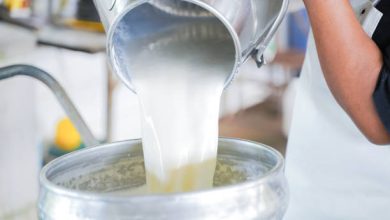From field to fortune, extension services are the missing link

Wherever way you look at it, smallholder farmers are the unsung heroes of our food system. Day in and day out, they toil under the sun, juggling unpredictable weather, pests, and market pressures, you name them-all to ensure our plates remain full.
And yet, despite their dedication, a persistent challenge remains: access.
Not just access to land or markets, but access to the right inputs at the right time, and perhaps more importantly, the right knowledge to turn those inputs into harvests that truly transform livelihoods.
For example, a bag of improved maize seeds or a sack of fertilizer is only as effective as the farmer’s know-how. Plant them incorrectly, misapply fertilizer, or neglect spacing, and even the best inputs will underperform.
This is precisely where agricultural extension services enter the scene.
Extension services are no longer optional
The farming landscape is changing rapidly. Climate change is rewriting rainfall calendars, pests and diseases are evolving faster than our ability to keep up, and Tanzania’s population and food demand continues to grow steadily.
Traditional farming methods and guesswork can no longer sustain our farmers. To thrive, farmers need timely, field-tested, and practical guidance. They need advice they can trust and implement whether that’s selecting drought-resistant seed varieties, adjusting planting techniques, or practicing sustainable soil management.
Without this bridge between research and the field, even the most promising technologies risk falling flat.
Extension services translate scientific knowledge into practical action. They equip farmers to make informed decisions and unlock the full potential of the inputs they invest in. Think of extension officers as the GPS for farming—without them, farmers are navigating complex agricultural challenges blindfolded.
Demo Plots: The cornerstone of extension
Recognizing the central role of extension, the Government of Tanzania has made it a priority in its 2023/24 agricultural plan.
The Ministry of Agriculture aims to establish 100 demo plots and 28 model farms, producing seeds for local use and providing training for 2,000 farmers and 725 extension officers.
But improving agriculture isn’t a solo mission. Partnerships matter. Organizations like One Acre Fund, where I work, complement government efforts by investing in community-level demo plots. This year, as part of a pilot program, 26 demo plots were set up across various regions.

The beauty of demo plots is their simplicity and visibility. Farmers can observe new techniques in action, learn in groups during organized sessions, or pick up tips casually while passing by.
These plots are managed alongside model farmers, who practice improved techniques and cultivate crops that demonstrate what’s possible on smallholder farms. The knowledge doesn’t stop at the plot’s boundary—it
spreads organically as farmers share insights and adopt new methods in their own fields.
The ripple effect: From one plot to many
Extension work thrives on trust. Farmers are more likely to adopt new practices when guidance comes from a reliable, consistent, and relatable source. Our extension teams work directly with farmers at demo plots and local input outlets, providing ongoing support whenever questions arise.
And the impact speaks for itself. According to Food and Agriculture Organization (FAO) studies, farmers who receive training consistently report higher yields, healthier soil, and more resilient farms. A single demo plot can influence dozens of households, and over time, these practices spread from one farm to the next.
What starts as an external service eventually becomes community-driven knowledge. Demo plots act as both training tools and catalysts for long-term behavior change. They normalize experimentation, foster peer-to-peer learning, and cultivate a culture in which extension is not an optional add-on but an integral part of daily farming life.
Partnerships: Scaling the impact
To sustain and expand this progress, partnerships are essential. Collaborating with input suppliers can reduce the cost of establishing demo plots while giving companies direct exposure to thousands of potential customers.
For example, One Acre Fund plans to link 51 demo plots to extension officers across Mbeya, Songwe, Iringa, and Njombe. With the right support, these 51 plots could grow to 2,000, providing a platform for seed and fertilizer companies to showcase their products while simultaneously boosting farmer learning.
Similarly, government initiatives can benefit from partnering with organizations already implementing successful demo plot programs. Joint planning, resource- sharing, and coordinated training can accelerate impact and ensure consistent messaging nationwide.
Ultimately, this is about creating lifelong learners in agriculture. When farmers regularly visit demo plots, attend trainings, and experiment with new techniques, they develop habits that drive innovation, adoption, and sustainable growth.
Combine this mindset with quality inputs, and you have the recipe for lasting prosperity in farming communities.
Why this matters
In Tanzania, smallholder farmers form the backbone of our food system. Extension services are not a luxury they are a necessity. They bridge the gap between potential and reality, helping farmers translate inputs, research, and opportunity into tangible, life-changing results.
By investing in extension services, demo plots, model farmers, and strategic partnerships, we are not just improving yields—we are cultivating resilient communities, empowered farmers, and a stronger national food system.
In short: the next time you enjoy a meal on your table, remember that behind it is a story of knowledge, guidance, and collaboration. Farming is no longer just about hard work—it’s about working smart, learning continuously, and sharing generously. And that is how extension can truly help feed our nation.





